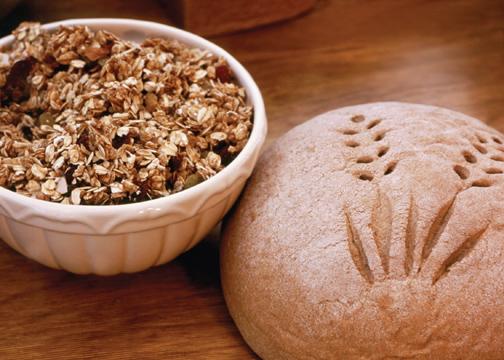I think it is fair to say that when most people go shopping they make an effort to get the best deal they possibly can. It may include going to the extent of cutting coupons, waiting for
sales, or fighting through crowds. Why? Because let’s face it, everyone has a budget. There are certain things that are ‘must-haves’ such as groceries, healthcare, car payments, utilities, mortgages or rent. You need things in this category to keep your life running smoothly. There will be days you spend quite a bit, and then days you hardly spend any money at all, but overall you work to stay in your budget to avoid dangerous financial trouble.

Calories work in the same manner. Think of them as dollars and your daily caloric expenditure as your budget. And just like a monetary budget, you don’t want to go over your calorie budget to avoid packing on the pounds and the related health risks. Just like a credit card, calories are not bad unless you overspend. It is 100% vital to have calories as they fuel your life by giving you the power to think, breathe, pump your heart, run with your dog, and laugh with friends. Simply put, calories are energy. So it is important you fuel yourself with enough calories. You should work with your doctor or dietitian to find and set a personal range for how many calories you can consume to maintain a healthy body weight.
Does counting calories sound like an ultimate drag? Try weekly weigh-ins instead to gauge your progress. If you see the pounds creeping up, evaluate your diet and see where those extra calories may be sneaking in. If there is nothing you are willing to give up or compromise, increase your workouts so you can increase your caloric budget. Just as going the extra mile in your job or local small business can mean a raise or higher sales, pushing yourself to perform athletically at a higher level means you can consume more without gaining the weight.
Since you have a limited amount of calories, it is important that each calorie is nutrient dense. When it comes to affecting your weight, all calories have the same affect, but it’s a different story when it comes to affecting nutritional status.

A good example: 8 oz. of fortified 1% milk compared to 8 oz. of your average soft drink. Both will provide you with 100 calories, but looking further you can see that milk also can provide you with 8 grams of complete protein, as well as vitamin A, and calcium. On the other hand, from the same amount of a pop you get more than double the amount of sugars, no protein, and no micronutrients other than sodium. Soft drinks are prime example of what is called “empty calories” or calories with no nutritional value.

So what’s a general rule to follow to get the highest nutritional value per calorie? Avoid refined foods, added sugars, fats, and sodium by sticking with fresh whole foods like vegetables, fruits, nuts, seeds, and whole grains since these foods maintain their nutrient value and phytochemical content.
What do you do to get the most out of what you eat?



